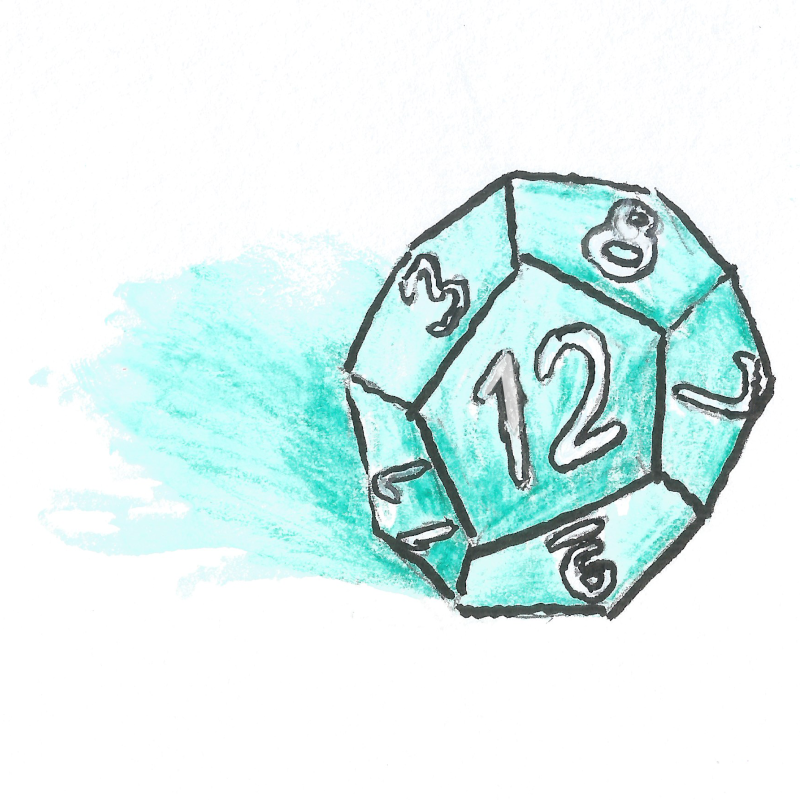Much has been written about the “Matt Mercer Effect” in TTRPGs, where actual play series with professional actors can raise people’s expectations for the game experience above what most GMs and players can provide.
I’ve thankfully never encountered this (I have surrounded myself with other Olds to whom YouTube shows are mostly a Young Whippersnapper Thing), but as an introvert, I fear it. It also taps into the fear that I need to present the best possible gaming experience or I’m going to let someone down.
But those sorts of dynamic gameplay experiences are hard when people-skills are not your forte. Arguably, that’s probably an issue for most hobbyist GMs—we tend to be the ones in our gaming groups who can read rules and get comfortable with how they translate to experiences. That’s a quiet, thinky skillset more than a dramatic and boisterous one.
Know your limitations
If I can wax philosophical for a bit, I think this is an important part of being honest with yourself. I’m never going to be particularly assertive, or self-confident, or dynamic. I can certainly get better at those things, but it’s always going to be a struggle and I’m always going to have limits and diminishing returns.
And that’s OK. Being better means being the best version of yourself you can be, not trying to be something you’re not.
The good news is: there’s not one correct way to be a gamemaster or player. Everyone will run systems and adventures differently. Leaning into your strengths is how you develop a unique voice as a player or GM.
I’m never going to be great at designing and running strategic combat. My preferences are always going to lean towards vaguely scientific low magic worlds. I’m never going to be too whimsical. I’ve decided not to try to do voices because I don’t want to create a distraction when I fumble them.
As an introvert, I’m always going to struggle with the social elements, at least a little. (Though the structure of the game is really helpful for me to interact with strangers.)
But I do pretty well with certain types of stories and settings. I try to follow the “be a fan of the PCs” maxim (even when I don’t really get what they’re doing). I think I write location descriptions pretty well. I do a decent job responding to players going in a direction I don’t expect. And so I don’t think less of myself for not obsessing over my drama skills.
You aren’t Matt Mercer or any other famous GM (unless you are, and… thanks for reading this humble blog). And that’s OK. There’s likely something about your style of playing and gamemastering that’s different from the way other people around you do it. You make the hobby better by leaning into those traits and creating the unique experience that only you can create rather than trying to force yourself into a specific mold.
Responding to players isn’t a free action
A helpful realization that I’ve had recently is that, even in the most self-starting groups, working with players at the table has a mental cost.
It’s usually a fairly low cost, but you need to factor it in to your GM prep. At the table, you are going to be slightly more distracted, slightly less focused and clear-headed, and tire little more easily than you are during GM prep. You need to plan for that, front-loading the more complicated mental tasks into GM prep, so that you can focus on being present with the players.
Review any important mechanics before the game. When gamemastering, you can let most little mechanical details slip without much trouble. Did you forget to add in a bonus to a save, or roll the wrong damage die? Not a problem in most cases—the players won’t notice.
But if you have a really important mechanic—one that the players can interact with in multiple ways—make sure you focus on that. For example: if a monster is attached to a summoning circle or other artifact, make sure you know what happens if the players start messing around with the binding.
I find myself tempted to let these slide when I’ve been GMing for an hour or two. Sometimes it’s not a big deal—the players don’t notice, and the fluffy descriptions I give make up for the lack of mechanical crunch behind them. But sometimes it does matter, and players might feel like the story was incoherent or cheated them.
Pause to write “boxed text” or other descriptions prior to the game. I mentioned this in my last post, but I try to pause during GM prep to envision scenes and write a short description. At the table, the words are not going to be on the tip of my tongue, I can’t edit looking for the perfect phrase, and I can’t spend time actually fleshing out the description of the world. Doing that beforehand gives me raw material I can use, even if I don’t read it verbatim.
